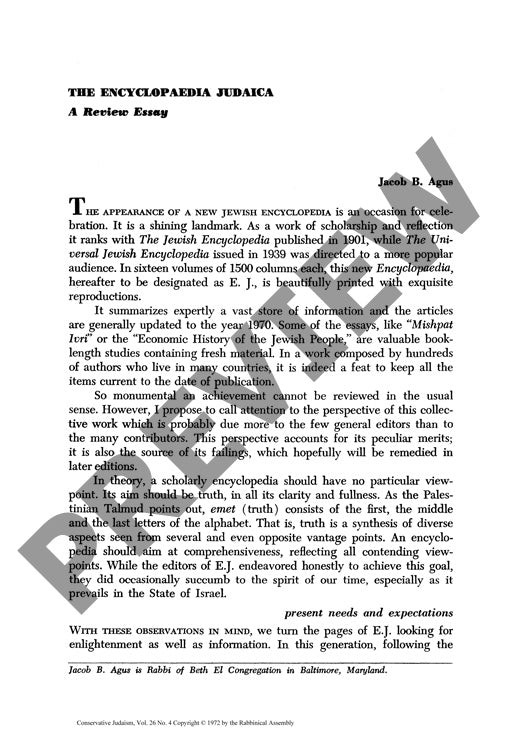The Encyclopaedia Judaica a Review Essay
Couldn't load pickup availability
The 1970 publication of the sixteen-volume Encyclopaedia Judaica (E.J.) marked a pivotal moment in Jewish scholarship, yet its pronounced Israel-centric perspective has shaped—and potentially distorted—its representation of global Jewish thought and experience. Through systematic comparison with earlier works like The Jewish Encyclopedia (1901) and The Universal Jewish Encyclopedia (1939), this review reveals both the E.J.'s remarkable achievements and significant blind spots. While the encyclopedia delivers exceptional coverage of biblical archaeology, art, and music, critical textual analysis across religious movements, historical events, and theological concepts exposes concerning editorial biases. Conservative and Reform Judaism receive inadequate attention, while treatment of anti-Semitism, the Holocaust, and interfaith dialogue lacks sufficient depth. The encyclopedia's Israeli editorial influence manifests in a Diaspora-negating Zionist interpretation that marginalizes alternative views of Jewish identity and experience. Despite representing a monumental scholarly achievement, the E.J. requires substantial revision to accurately reflect the diversity of world Jewry and serve as a truly comprehensive reference work for the global Jewish community.

More Information
-
Physical Description
-
Publication Information
Published 1972
ISBN
-
Publication Credits
Jacob Agus

